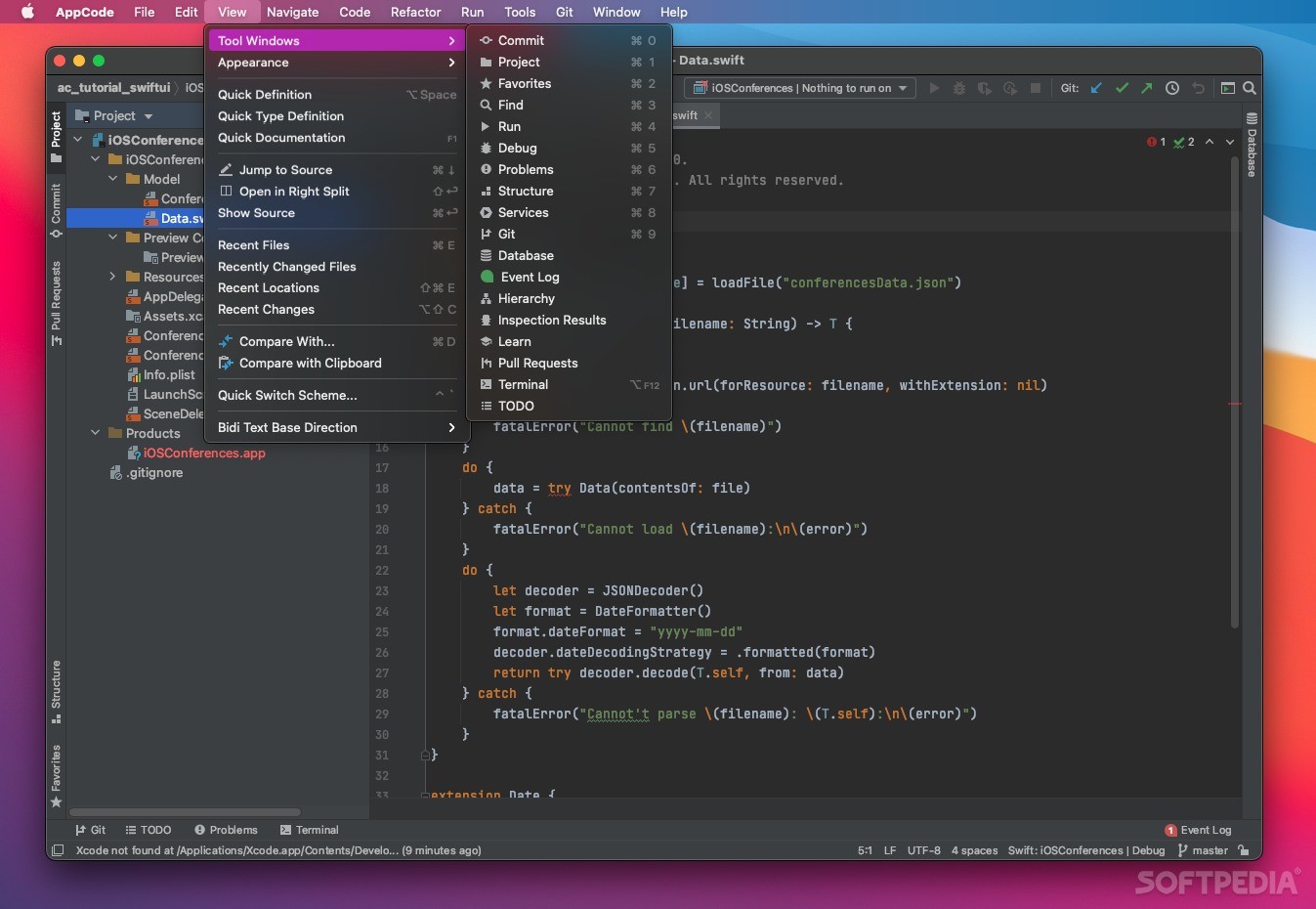

- #Appcode swift install
- #Appcode swift code
However, from its launch, the language has grown up to become one of the most used programming languages worldwide.īased on the Index from TIOBE, Swift has a record of being the 12th most sought programming language. It might seem like one of the latest languages in town since it was released in 2014.
#Appcode swift code
Why You Should Learn Swift Code Swift has a lot of future potential for iOS Big names such as Spotify, Instagram, and YouTube are some of the few names that use Swift for their Apps. Most of the Apps you find on Apple devices are built through Swift. Web and cross-platform - AppCode fully supports JavaScript, XML, HTML, CSS and XPath, including all code editing and transformation features like syntax highlighting, analysis, completion, navigation and refactoring.Swift is an Apple programming language launched in 2014, and it enables you to create apps for the Mac, iPhone, Apple Watch, and iPad.Take advantage of code completion, all navigation features, and coding features like refactorings, find usages and code generation. C++ - AppCode natively supports C, and C++, including modern C++ standards, libc++ and Boost.Objective-C - AppCode supports all the latest additions for Objective-C including nullability annotations, _kindof definitions and generic classes.Swift - Benefit from Swift support in AppCode that includes parsing, completion and highlighting for Swift statements, the rename refactoring, powerful debugging, and more.
#Appcode swift install
Install your preferred plugins simply by using Plugin Manager.
Plugins - The IntelliJ Platform endows AppCode with 50+ IDE plugins of different nature, including support for additional VCS, integration with different tools and frameworks, and editor enhancements such as Vim emulation. Xcode support - AppCode is fully compatible with the latest Xcode, so just open your project in AppCode and start working on it, no additional actions required. Integrations - Benefit from rich integration with third-party tools in AppCode, including CocoaPods, Reveal and more. And if you forget to add your project to version control, AppCode will save changes in built-in local history. Version control - AppCode provides a first-class unified interface for most popular VCS including Subversion, Git, Mercurial, Perforce, and more. Explore the content of a database, read and modify data and execute queries. Database support - AppCode bundles the first-class SQL and database management functionality from JetBrains DataGrip. It can even generate code for you as you write tests. Unit testing - Out of the box, AppCode supports XCTest, Quick, Kiwi, Catch, Boost.Test, and Google Test testing frameworks, and provides a built-in test runner together with a powerful UI to investigate test results. AppCode will show values right in the editor and help you evaluate expressions. Use the debugger UI with LLDB as the backend. Run and debug - Run and debug your projects in AppCode easily. Use one of the default keymaps or make your own easily. Editor customization - Select one of the predefined user interface themes or customize them to match your personal requirements. Navigation & search - Navigate to any class, function or symbol in your code quickly and inspect only relevant usages while searching. Static analysis for all supported languages will highlight every error or warning and suggest quick-fixes right as you type. Code analysis - Write clean and correct code with AppCode. Refactorings and code generation - Focus on important tasks and let AppCode take the routine away: from simple property declaration to inserting complex code chunks via live templates. Benefit from more kinds of code completion and formatting than you can imagine. Smart Editor - Code fast with an IDE that analyzes your context and understands your project.





 0 kommentar(er)
0 kommentar(er)
